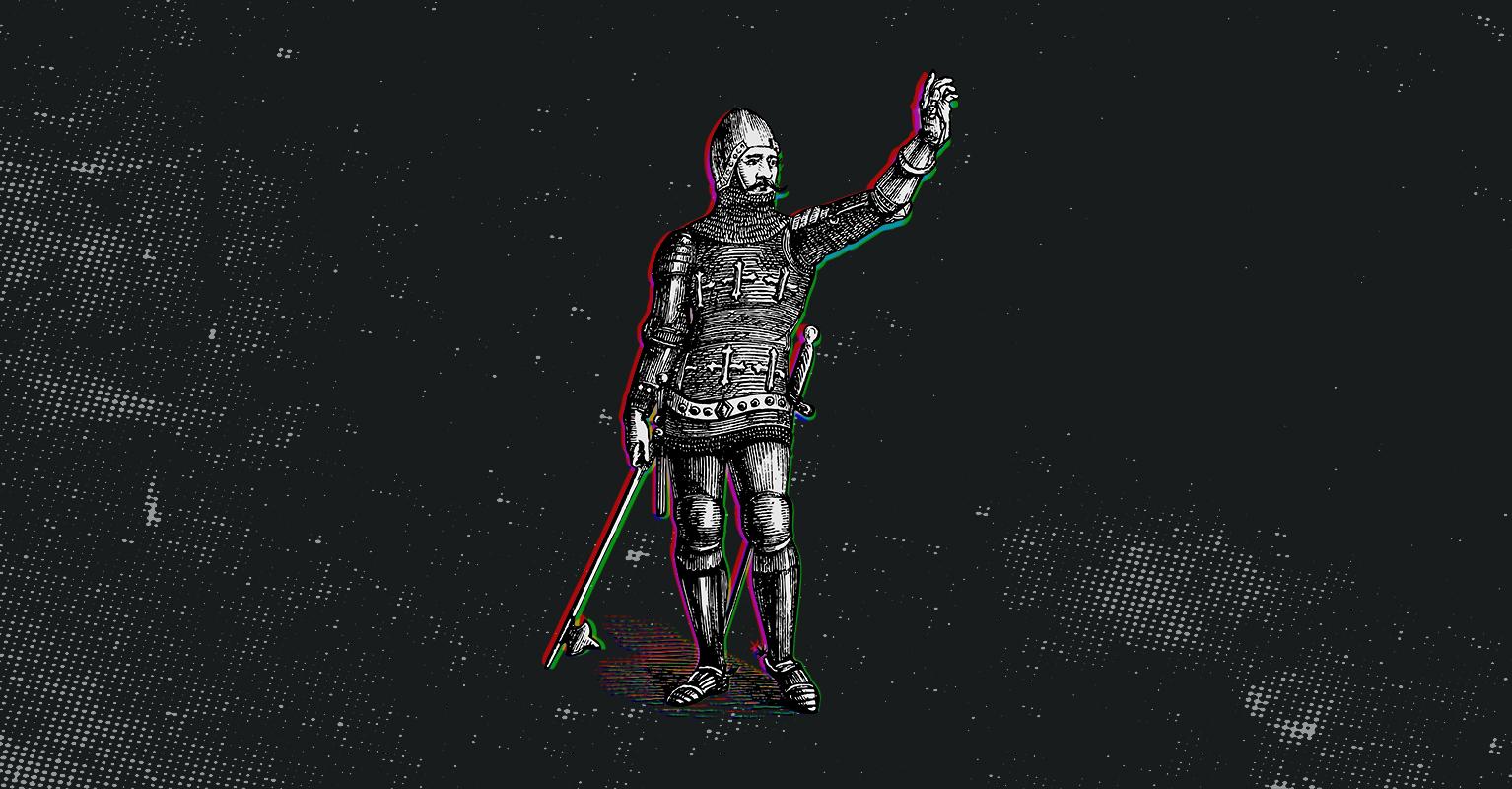It is a universal feature of human nature that we long to be a part of something bigger than ourselves. We want a goal, a purpose, a noble cause to which we can give our lives. Men, in particular, are often stirred by this longing. It’s why we are drawn to sports, to competition, to professional ladder-climbing, to risk-taking, and to the glories of war. It’s why that meme went around about how often men think about the Roman Empire.
It’s also why an increasing number of Christians are drawn to the ideas and ideals of Christendom, that period of history dating from late antiquity through the Middle Ages, when European society and culture were closely tied to the church and bore deep imprints of being shaped by Christianity. Not only does the re-creation of Christendom provide an audacious goal for the future, it also provides a nostalgic remembrance of the (romanticized) past. When the Holy Land is overrun, so to speak, there is no choice but to launch a Crusade. Thus, brave Christians—the manly ones—will gird up their loins, pick up their swords, and ride out into battle against the enemy.
The romantic appeal of Christendom is that it still believes in knights.
The Knight’s High Calling
That need not be a bad thing. We need heroes from the past, as well as inspiration for the present. And the knight has proved to be an enduring symbol of valor for almost a thousand years. But if Christian men are going to aspire to be these heroic defenders of Christendom, we ought to know what these knights were supposed to be like.
Medieval knights were men, often from the nobility, who received training and instruction so that they might be of special service to God and to the Church. At the heart of their multi-year apprenticeship was comprehensive instruction in chivalry. Although the origins of chivalry were secular, the concept became closely aligned with Christianity. As medieval historian Maurice Keen explains in his book, Chivalry, the knight had three basic duties. The first duty was to defend the faith of Christ against unbelievers (note: not to wield the sword against other Christians). His next duty was to defend his earthly lord. His third responsibility was to protect the weak. In pursuit of these duties, the knight might be sent on a crusade far away, or he might be asked to exercise his responsibilities closer to home.
As important as these obligations were, the manner in which the knight carried them out was as important as the duties themselves. The most significant legacy of chivalry, Keen maintains, is that it established norms of service and self-restraint that became synonymous with heroism throughout Christian history and in the Western tradition more generally. The chivalric ideal identified and codified which acts and which attitudes were considered honorable. Chivalry prized bravery, fortitude, and physical prowess—but also humility, gentlemanly behavior, and courtliness toward women. The two sets of virtues were never to be separated. At all times, the knight was to be noble and courteous.
One of the best descriptions of the medieval idea of chivalry comes from the Lancelot-Grail Cycle, the famous thirteenth-century collection of stories about King Arthur and his Knights of the Round Table. When Lancelot first expresses his desire to be a knight, the Lady of the Lake instructs him in all that knighthood requires. Her speech is a paradigmatic description of chivalry as it was understood in medieval Europe:
This task of defense was conferred upon those men whom people commonly deemed the most worthy: men who were tall and strong and handsome and lithe, loyal and brave and bold, men who had all the virtues of heart and body. But knighthood was not given to them lightly or without a price; no, a heavy burden was placed on their shoulders. Do you know what it was? In the beginning, when the order of knighthood began, it was required of anyone who wanted to be a knight and was legitimately chosen that he be courteous and not base, gracious and not a scoundrel, compassionate toward the afflicted, generous and helpful to the needy, ready and able to foil thieves and murderers, an upright judge unswayed by love or hatred—love that might weigh against the right or hatred that might plead in favor of the wrong. A knight must not, out of fear of death, do anything that might bring him dishonor or even a hint of it, but must fear a shameful act more than death.
A Different Kind of Warrior
What is missing from the present version of manly bravery is the insistence that charging into battle requires the “heavy burden” of virtue—and not just one virtue (fortitude), but all of them (prudence, justice, and temperance). If today’s would-be knights are serious about exercising Christ’s dominion on the earth, they must first be serious about exercising dominion over themselves—over their speech, over their anger, over their petty vindictiveness. It is not enough that we are ready to fight. We must also be courteous and not base, fair and not ruled by our passions, gracious and not a scoundrel.
If men cannot be persuaded of this from the New Testament—say, from the fruit of the Spirit or from the Beatitudes—perhaps the medieval knight can land a glancing blow. Young boys slap and kick and call each other names. Grown men learn that real fortitude is harder than mere bravado and often takes longer and looks more ordinary. If we are going to call men to do manly things—as well we should—let’s call them to be Christian men, like the heroic knights of old. As Ramon Llull’s thirteenth-century manual, The Book of the Order of Chivalry, put it: “Courtesy and Chivalry belong together, for baseness and uncouth words are contrary to Chivalry.” The knight was to be, at all times, a man of “loyalty, truth, valor, true largesse, honesty, humility, piety and other things similar to these.” According to Llull (who, in addition to being a philosopher and former knight, was also martyred as a missionary to Muslims), the worst thing that could befall a knight was to be robbed of his honor—by the treachery of others or, even worse, by his own actions and deportment.
The genius of knighthood was the genius of Western Christendom itself: at its best, it took the heroic spirit of a warrior people and infused it with the Christian spirit of charity toward others and denial of self. The man who was ready to fight—however noble the cause—was not yet ready to be a knight. The code of chivalry allowed the warrior to fight because it first ensured he knew how to fight.
There is nothing noble in fighting for its own sake. The devil knows how to prowl and devour and fight as well as anyone. Every culture celebrates warriors of one kind or another. Often, they are bloodthirsty and cruel. What the best of Christendom called knights to be was a different kind of warrior—humble, honest, fair, dignified in speech and gracious in character. That’s the chivalrous hero we ought to emulate, not the brawler who thinks self-restraint is for sissies and courtesy is for cowards.
If we are to be knights and chieftains and warrior-kings, let us get a good look at what the idealized chivalry of Christendom calls us to be—not a brutish and barbarous people, but something unique to those who serve under the sign of the cross. Those who are eager to fight for the preservation of our Western and Christian civilization would do well to know what it means to be Western and what it means to be Christian.
Kevin DeYoung is the senior pastor at Christ Covenant Church (PCA) in Matthews, North Carolina and associate professor of systematic theology at Reformed Theological Seminary.





